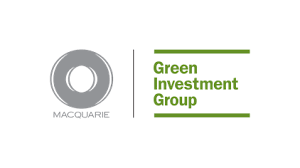Privatised Green Investment Bank under fire over level of UK investment

Trustees of the former state-owned, Edinburgh-based Green Investment Bank have raised concerns over the level of investment in UK projects compared to rest of Europe since its controversial privatisation in 2017.
As part of seeing it close the acquisition of the GIB, Australian bank Macquarie agreed to the establishing of an independent trustee board - known as the Green Purposes Company (GPC), with the aim of it safeguarding the green mission of the UK Green Investment Bank’.
It has the power to approve or veto any proposed amendment to GIG’s green purposes.
Now, the board of trustees’ annual letter to the lender, which is still headquartered in Edinburgh but now known as Green Investment Group (GIG), raised concerns over the bank’s investment record under Macquarie, which it said showed just 40 per cent of the £450m of support over the period was focused in the UK, with around 60 per cent in the rest of Europe.
The GIG has leveraged around £169m of co-investment in UK projects, yet has proportionally secured around twice as much co-investment in Europe - £560m - according to the letter.
“Whilst the GPC welcomes the investment in Europe, we are disappointed by the relatively low UK investment levels, whilst noting that the UK green investment market weakened during this reporting period,” the letter states.
The trustees also called for public clarification from the GIG on how it assesses investments made against its investment target, and raised concerns about the level of transparency over GIG’s assessment process for supporting new green projects.
It said the transparency of the assessment process was “significantly less than the exemplary approach of the European Investment Bank”.
It was established when Macquarie acquired the Green Investment Bank from the UK government for £2.3bn in 2017 and renamed it the Green Investment Group.
The infrastructure banking giant pledged to retain the bank’s green focus and leverage £3bn in green projects over the first three years of operation across Europe. It has to date secured around £1.6bn towards that target, although it does not provide a regional breakdown of its investments.
The Bank’s sale in 2017 was widely opposed by green groups amid fears the state-run investment vehicle could lose its domestic environmental focus. Lib Dem leader Vince Cable, who was instrumental in setting up the Green Investment Bank when he was Business Secretary in 2012, repeatedly criticised its sale into the private sector, which MPs on Parliament’s Public Accounts Committee later described as “deeply regrettable”.
The warning, published alongside the bank’s annual report, reignites fears around Macquarie’s stewardship. Liberal Democrat leader Sir Vince Cable, who set up the bank while business secretary in the coalition government, said: “It was not meant to be a World Bank. There are a lot of potential projects in the UK.”
Rebecca Long-Bailey, Labour’s Shadow Secretary for Business, Energy and Industrial Strategy, joined this week’s criticism of the GIG’s investment record.
“Labour warned that selling off the Green Investment Bank would jeopardise the ability of British businesses to compete in the global green goods and renewables market - where the UK should by rights be a global leader,” she said. “This now appears to have come to pass.”
But the GIG defended its record in a statement which said it remained “firmly committed to the UK” and was confident of further domestic investment over the coming year.
Last month, the GIG announced the financial close on a project waste-to-energy project in Grangemouth, Scotland, in which it holds a 50 per cent stake.
“Our business is led from the UK and we continue to be highly active here,” GIG said in a statement. “Both our first and most recent investments have been in the UK and we’re confident 2019 will continue to deliver exciting opportunities in our home market alongside rapid development of GIG’s impact as a clean energy investor in international markets.”



